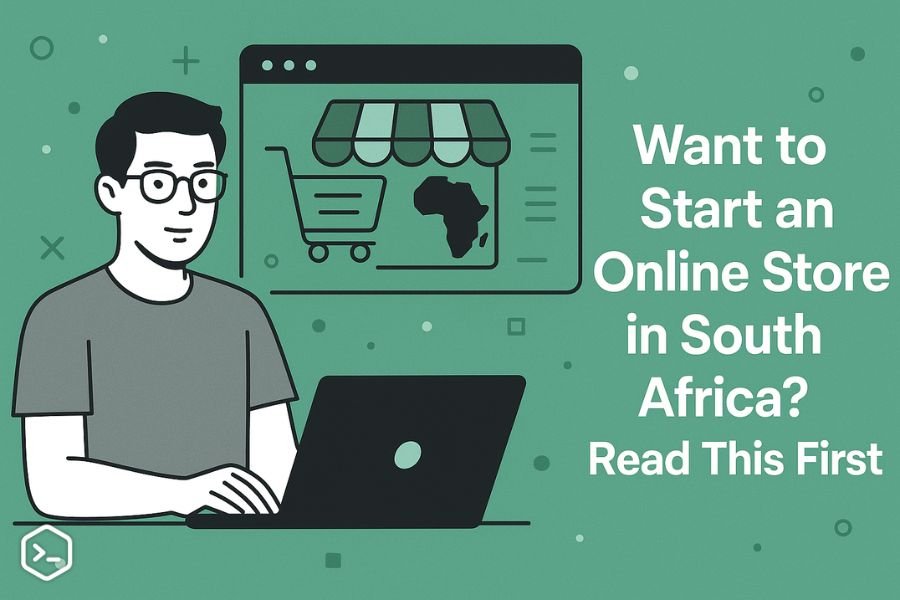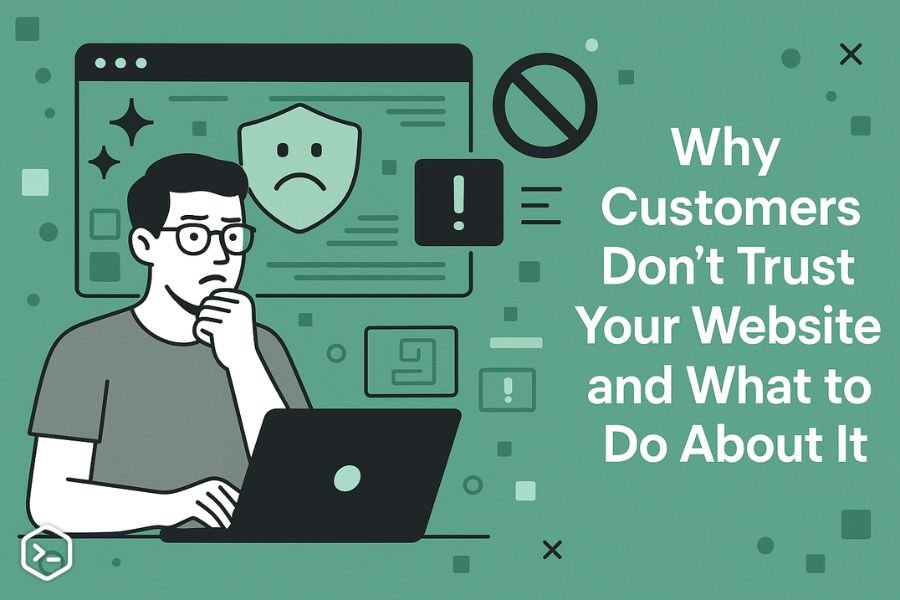Starting an online store in South Africa in 2025 is more than just a trend, it’s a smart move. With more South Africans turning to the internet to shop for everything from clothes to electronics and even groceries, the e-commerce space is wide open for new business owners who are ready to offer value. If you’ve ever dreamed about working for yourself or building a business that runs even while you sleep, an online store could be your path.
This article is packed with everything you need to know, from picking the right platform, setting up payment methods, and finding the right products, to shipping and marketing your store. Whether you’re completely new to online business or you’ve already tried selling online, you’ll find helpful advice that makes your journey easier and less overwhelming.
Why Start an Online Store in South Africa?
South Africa’s online shopping scene has grown faster than ever in the past few years. Thanks to affordable smartphones, better internet coverage, and the rise of secure online payment options, more people are buying what they need without going to a physical store. This shift in shopping habits is here to stay and it’s only going to get bigger.
Big-name platforms like Takealot, Superbalist, and Zando have helped build trust in online shopping. But there’s also a growing demand for niche online stores that offer something different, better customer service, unique products, or a more personal shopping experience. That’s where you come in.
Starting your own online store means:
- You’re open 24/7 – customers can shop while you sleep.
- You save on rent and utilities – no need to lease a shop in a busy mall.
- You can sell to anyone in the country – or even beyond, with the right setup.
- You build a brand – something that’s 100% yours.
Even if you’re starting small, South Africa is full of opportunity for entrepreneurs who are willing to learn and adapt.
What Are the Best E-commerce Platforms in South Africa?
Choosing the right platform is like choosing the foundation for your house. It needs to be solid, reliable, and able to grow with you. Luckily, there are some great options that are perfect for South African entrepreneurs, from international platforms with global features to local platforms that understand the local market.
Here are some of the most trusted e-commerce platforms you can use to build your online store:
1. Shopify
Shopify is one of the most popular e-commerce platforms in the world — and for good reason. It’s super easy to use, even if you’re not tech-savvy. You can create a store in a few hours using their drag-and-drop templates. Plus, it works well with South African payment gateways like PayFast and Peach Payments.
Why Shopify?
- Beautiful, mobile-friendly templates
- Fast loading speeds and reliable hosting
- Works with both physical and digital products
- Excellent customer support
- Global scalability, grow your store worldwide
Best for: People who want a simple, fast setup and don’t mind paying a monthly fee for ease of use and professional features.
2. WooCommerce
WooCommerce is a free plugin that turns any WordPress website into a full online store. It’s very flexible and offers complete control over your website, but you’ll need to handle things like hosting, security, and updates yourself.
Why WooCommerce?
- Total control over how your store looks and works
- A huge number of free and paid plugins for custom features
- No monthly platform fee, just pay for hosting
- Integrates with South African payment gateways
- Ideal for SEO and content-driven sites
Best for: Users who already know WordPress or want full customization freedom.
3. Wix
Wix is another beginner-friendly platform that allows you to build a website using drag-and-drop tools. Their eCommerce plans are great for small stores, and setup is easy. It’s less customizable than WooCommerce but perfect for someone who wants to get started quickly.
Why Wix?
- Easy to use for beginners
- Comes with hosting and security
- Stylish templates
- Offers built-in marketing tools like email and social media integrations
Best for: Beginners who want a simple, all-in-one solution with minimal setup.
4. Shopstar
Shopstar is a South African platform built specifically for local entrepreneurs. It offers clean templates and useful tools, with local support and integration with South African shipping and payment systems.
Why Shopstar?
- Built for the South African market
- Local customer support
- Simple and clean website builder
- Easy integration with PayFast
- Affordable pricing plans
Best for: South African small businesses that want local support and a platform designed for the local economy.
How Do I Set Up Payment Methods?
One of the most important parts of running an online store is making sure your customers can pay easily and securely. If your checkout process is confusing, or if people don’t trust your payment system, you’ll lose sales — fast.
Luckily, South Africa has some excellent, reliable payment gateways that make this easy:
1. PayFast
PayFast is one of the most popular payment gateways in South Africa. It allows customers to pay using:
- Credit and debit cards
- Instant EFT
- Zapper
- Mobicred (credit solution)
- Masterpass
Why PayFast?
- Easy integration with all major platforms
- Safe and secure for both store owners and customers
- Local support team if you need help
2. Peach Payments
Peach Payments is a powerful alternative to PayFast and supports:
- Card payments
- Instant EFT
- Subscription billing
- Digital wallets
It also supports international payments, which is great if you plan to sell outside of South Africa later.
3. Netcash
Netcash offers a wider variety of business payment tools, including:
- Debit orders
- Pay Now links
- Payroll payments
- QR code payments
It’s more commonly used by larger businesses or B2B companies but is also worth considering if you need those extra tools.
Integrating Your Payment Gateway
Most platforms like Shopify, WooCommerce, and Wix let you install and set up payment gateways in just a few clicks. You’ll need to create a merchant account with the provider, submit your store’s details, and wait for approval. Once it’s approved, your store is ready to take payments.
What Products Should I Sell?
Choosing the right products is one of the most important decisions you’ll make. Not every product will sell well online, and not every product is easy to ship or source. So before you jump in, ask yourself:
- What am I passionate about?
- Is there demand for this in South Africa?
- Who is my target customer?
- Can I deliver this product quickly and safely?
Some popular and proven product categories in South Africa include:
- Fashion and accessories: Clothing, handbags, shoes, and sunglasses
- Beauty and skincare: Especially natural and organic brands
- Health and fitness products: Supplements, gym gear, yoga mats
- Home and décor items: Furniture, kitchen gadgets, and art
- Mobile phone accessories: Chargers, cases, screen protectors
- Digital products: Ebooks, online courses, templates
Tips for Choosing Winning Products
- Look at what’s trending on Takealot, Facebook Marketplace, and Instagram
- Use Google Trends to see what people are searching for in South Africa
- Start small and test a few products before committing to large inventory
- Avoid items with a high return rate unless you have a clear return policy
You can sell products you create yourself, buy in bulk and resell, or use a dropshipping model, where you list products from suppliers and only order them when someone buys.
How Do I Handle Shipping and Delivery in South Africa?
Shipping can make or break your online store’s success. No matter how good your products are, if customers experience late deliveries, damaged packages, or expensive shipping fees, they won’t come back.
For South African online stores, efficient and reliable delivery is key to keeping your customers happy. You’ll need to partner with trusted courier services that can help you deliver products quickly, safely, and at a fair price.
Here are some of the best courier companies for online stores in South Africa:
1. The Courier Guy
The Courier Guy is one of the most popular local courier services. They offer:
- Nationwide delivery, including to outlying areas.
- Same-day and next-day delivery in major cities.
- Easy online tracking for customers.
They’re known for affordable prices and excellent customer service, making them a favorite for small and medium businesses.
2. Aramex
Aramex is a global logistics company with a strong presence in South Africa. They provide:
- Reliable domestic deliveries.
- International shipping options for when you want to expand.
- Convenient drop-off points and lockers.
Aramex is a great choice if you want to start locally but plan to sell to other countries in the future.
3. DHL Express
DHL is a top choice for international shipping. Though it’s a bit pricier than local options, it offers:
- Fast and secure international deliveries.
- Professional customer support.
- Reliable tracking and delivery notifications.
If you plan to export products or sell to customers overseas, DHL Express will ensure your products arrive on time.
4. Fastway Couriers
Fastway is ideal for local deliveries within South Africa. They provide:
- Affordable rates for small businesses.
- Simple pricing based on zones.
- Pickup and delivery services.
Fastway is best for stores that want to keep delivery costs low while serving customers across the country.
Offer Multiple Shipping Options
To satisfy different customers, it’s smart to offer choices. Some shoppers are happy to wait a few days if shipping is free, while others will pay extra for faster delivery. Consider offering:
- Standard shipping (3-5 business days)
- Express delivery (next-day or 2-day delivery)
- Free shipping over a certain purchase amount
Be Clear About Shipping Costs and Times
One of the biggest reasons customers abandon their shopping cart is unexpected delivery fees. Always:
- Display shipping costs clearly at checkout.
- Set correct delivery time expectations.
- Provide tracking numbers once the order ships.
Transparency builds trust and keeps your customers happy.
How Can I Market My Online Store in South Africa?
Opening an online store is just the beginning. To get sales, you need people to visit your website. That’s where marketing comes in.
Here are simple but powerful ways to market your online store in South Africa:
1. Social Media Marketing
Social media is where most South Africans spend their time online. Platforms like Facebook, Instagram, TikTok, and Twitter are great for:
- Showcasing your products with photos and videos.
- Running giveaways and promotions.
- Interacting with your audience through comments and messages.
- Running paid ads to reach more potential customers.
Tip: Use local influencers to promote your products to their followers.
2. Email Marketing
Email remains one of the best ways to drive repeat sales. Start building an email list by offering:
- Discount coupons for first-time buyers.
- Free guides or useful content.
- Updates on new product launches.
Send regular newsletters, special offers, and personalized recommendations to keep your audience engaged.
3. Search Engine Optimization (SEO)
SEO helps people find your store when they search on Google. To improve your SEO:
- Use keywords in your product titles, descriptions, and blog posts.
- Write helpful content like buying guides and product reviews.
- Optimize your website for fast loading and mobile devices.
- Get backlinks from other local websites.
Good SEO means free, ongoing traffic to your website.
4. Paid Advertising
Once you have a bit of budget, paid ads can bring in quick results. You can advertise on:
- Google Ads (people searching for products)
- Facebook & Instagram Ads (targeted by location, interests, etc.)
- YouTube Ads (product videos and tutorials)
Even a small daily budget can help you get visibility and sales.
What Legal Requirements Should I Be Aware Of in South Africa?
Running an online business means you need to stay legal and compliant. Here are the main legal steps you should follow:
1. Register Your Business with CIPC
While you can start selling without registering a business, having a registered company name (Pty Ltd) adds credibility and opens doors for growth. You’ll need to:
- Register with the Companies and Intellectual Property Commission (CIPC).
- Choose a company name and get a registration number.
It also helps if you want to open a business bank account or apply for funding later.
2. Register for Tax
All businesses must comply with SARS (South African Revenue Service) regulations. You need to:
- Get an Income Tax Reference Number.
- Register for VAT if your turnover exceeds R1 million per year.
- Submit tax returns on time.
3. Follow the Consumer Protection Act
South African law protects consumers. Your online store must:
- Have clear policies on returns, refunds, and warranties.
- Provide accurate information about products.
- Ensure safe and secure transactions.
4. Comply with POPIA (Protection of Personal Information Act)
POPIA ensures you handle customer data responsibly. Make sure:
- You have a privacy policy.
- Customer information is stored securely.
- You don’t share personal data without consent.
Staying compliant builds trust with your customers and keeps you out of legal trouble.
How Do I Build Trust with Customers in South Africa?
Trust is everything in online business. If people trust your store, they’ll buy from you. If they don’t, they’ll look elsewhere. Here’s how to build that trust:
1. Have a Professional Website
Your website is your shopfront. Make sure it:
- Looks clean, modern, and easy to navigate.
- Has clear product descriptions and high-quality images.
- Works well on mobile phones.
2. Display Customer Reviews and Testimonials
Social proof matters. Show real reviews from happy customers. This helps new visitors feel confident about buying from you.
3. Be Transparent About Policies
Clearly explain your:
- Shipping costs and delivery times.
- Return and refund policy.
- Privacy and data protection.
Transparency builds trust and reduces customer complaints.
4. Use Secure Payment Methods
People want to feel safe when paying online. Use trusted payment gateways like PayFast or Peach Payments. Display security badges on your site to reassure customers.
5. Offer Reliable Customer Support
Make it easy for customers to contact you. Offer support through:
- Social media DMs
Respond quickly and professionally to build long-term customer relationships.
FAQs on Starting an Online Store in South Africa
-
Do I need a registered business to start an online store?
Technically, you can start selling without registering a business. But if you’re serious about growing, registering your business with CIPC adds legitimacy, allows you to open a business bank account, and keeps you tax compliant.
-
Can I run an online store from home?
Yes! Many successful online stores operate from home. You’ll just need a good internet connection, a laptop, and space to store products (unless you’re dropshipping).
-
How do I handle returns and refunds?
Set up a clear returns and refund policy on your website. Communicate timelines and conditions (e.g., returns accepted within 7 days if the product is unused). Make the process easy for customers to avoid disputes.
-
What if I don’t have products to sell?
You can use the dropshipping model. This means you list products from suppliers on your store, and they handle inventory and shipping. You only pay for the product once a customer buys it. Platforms like CJ Dropshipping, AliExpress, and local South African suppliers can help you get started.






